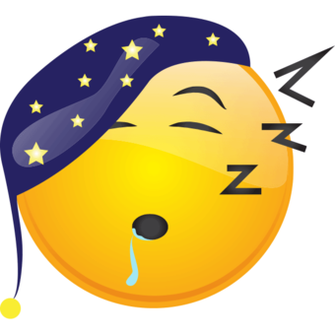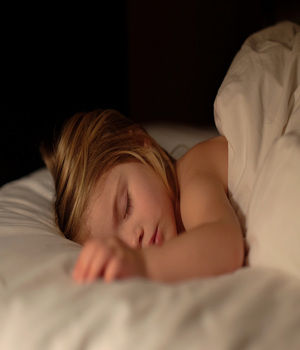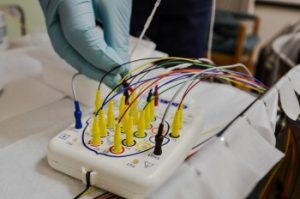People will go to great lengths just to be able to sleep soundly again. Some even shell out the extra dough for treatments and services that promise a better and longer shuteye even just for a while. Sleep, or better yet, the lack of it, has a major impact on people’s lives. You perform poorly at school or at work and always feel sleepy during the day. You even raise your risk of getting injuries or into accidents because you feel drowsy most of the time.
 There are different reasons for sleep deprivation. Sleep apnea and restless leg are two of them but it can also be caused by other distractions. It is more difficult for people whose sleeplessness they have no control over with. Like with sleep apnea, there is little you can do about it given that it is still incurable. However, there are plenty of sleep management procedures and products one can try to help them overcome their sleep issues. But prior to treatment, a person is often asked to undergo a sleep study. This in itself is quite costly already and not all the time covered by insurance. Once the results are in can treatment really begin. Yet throughout this entire ordeal, you have to ensure your pocket is deep because diagnosis to management does not come cheap.
There are different reasons for sleep deprivation. Sleep apnea and restless leg are two of them but it can also be caused by other distractions. It is more difficult for people whose sleeplessness they have no control over with. Like with sleep apnea, there is little you can do about it given that it is still incurable. However, there are plenty of sleep management procedures and products one can try to help them overcome their sleep issues. But prior to treatment, a person is often asked to undergo a sleep study. This in itself is quite costly already and not all the time covered by insurance. Once the results are in can treatment really begin. Yet throughout this entire ordeal, you have to ensure your pocket is deep because diagnosis to management does not come cheap.
A lot of people are spending that much and more in search of the elusive good night’s sleep.
More than a third of Americans don’t get the recommended seven hours of shut-eye and as many as 70 million people have a chronic sleep disorder, according to the Centers for Disease Control and Prevention and the National Center on Sleep Disorder Research.
Sleep studies, the gold standard for diagnosing sleep disorders, are such big business that the number of accredited sleep centers across the nation has soared from 500 in 2000 to 2,600 today.
Independence Blue Cross, the largest private insurer in the Philadelphia region, has seen a 28 percent increase in the number of sleep studies it has been billed for over the last five years, with about 32,390 studies in 2017 alone.
(Via: http://www.philly.com/philly/health/health-costs/high-cost-of-a-good-nights-sleep-20180606.html)
The sleep industry is a thriving one these days. Not only do they cater to patients with disorders or conditions that prevent them from getting a restful sleep like sleep apnea but individuals whose lifestyle prevents them from enjoying a good night’s sleep also spend a fortune to somehow give their tired bodies the rest it needs because no amount of money can essentially take the place of a long and restful slumber.
No matter how pricey these treatments are, people who are really struggling with sleep do not hesitate to pay for it because it is their chance to become normal again. If you opt to buy sleep apnea mouthpieces such as the GMSS and SleepTight to address snoring and sleep apnea, it is also an additional expense but a slightly cheaper option compared to an invasive surgery or CPAP.
-
Soak up some sunshine
Expose your eyes to light first thing in the morning by opening your blinds and turning on your lights as soon as you wake up. Take a walk outside in the morning and over your lunch hour — you’ll get exercise and healing light at the same time. If you have a window in your office, position your desk so that you face it, or are at least perpendicular to the window.
- Rethink your lighting
If you’re stuck in a windowless office all morning, invest in the LED light bulbs created by Definity Digital. Their “Awake and Alert” light bulb produces blue light to keep you awake, and it’s bright enough to help affect sleep-wake cycles. You can also use a special bulb like Definity Digital’s “Good Night” light bulb, which filters out the blue light in the afternoon and evening, when it’s best to avoid fluorescent and LED lighting.
You should no longer be proud that you are losing sleep because of too much work. Learn to care for your body first or all your nasty habits or negligence will take its toll on your health over time. When you are getting insufficient sleep, everything else in your body suffers. If you are not blessed with having a deep pocket, then you can try more natural remedies that help address sleeplessness. But they only serve as an adjunct management to your treatment plan if you are diagnosed with a condition like sleep apnea because it warrants medical attention.
Making positive lifestyle changes can make a big difference in your life without hurting your finances. One of the best things you can do for yourself is to distance yourself from too much electronics especially when it is nearing your bedtime. They emit harmful blue light that can mess up your body’s circadian rhythm and further mess up your chances of sleeping soundly through the night. Do your research because you don’t always have to spend money in order to do something good for your health and well- being.


